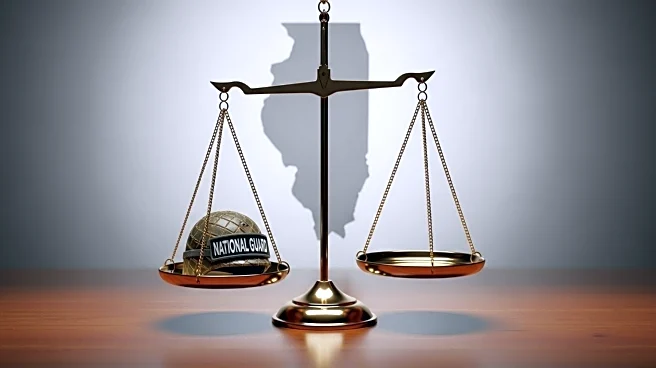What's Happening?
A federal judge has issued a temporary restraining order against the deployment of National Guard troops in Illinois, following objections from state and local leaders. The decision comes in response to the Trump administration's plan to deploy the National Guard, which has been met with resistance from Illinois officials who argue that the deployment is unnecessary and could exacerbate tensions. The restraining order halts the deployment until further legal proceedings can determine the appropriateness of the federal action.
Why It's Important?
The judge's decision to block the National Guard deployment highlights the ongoing tension between federal and state authorities regarding the use of military forces within U.S. borders. This case underscores the delicate balance of power and the importance of state autonomy in decisions affecting local governance and public safety. The outcome of this legal battle could set a precedent for future federal-state interactions, particularly in situations involving civil unrest or emergency responses. Stakeholders such as state governments, civil rights groups, and federal agencies are closely monitoring the situation, as it may influence policy and operational decisions across the country.
What's Next?
The temporary restraining order is likely to lead to further legal proceedings as both sides prepare to argue their case in court. The Trump administration may seek to overturn the judge's decision, while Illinois officials will continue to advocate for state rights and local control over security measures. The case could attract national attention, prompting discussions on the role of federal intervention in state affairs. Depending on the court's final ruling, there may be implications for how similar situations are handled in other states, potentially affecting national policy on domestic military deployments.
Beyond the Headlines
This legal confrontation may also spark broader debates about the ethical implications of deploying military forces in civilian areas, especially in the context of political dissent or public protests. The case raises questions about the balance between maintaining order and respecting civil liberties, and could influence public opinion on the use of military power in domestic settings. Additionally, the decision may impact the relationship between the federal government and states, potentially leading to calls for clearer guidelines on federal intervention in state matters.










